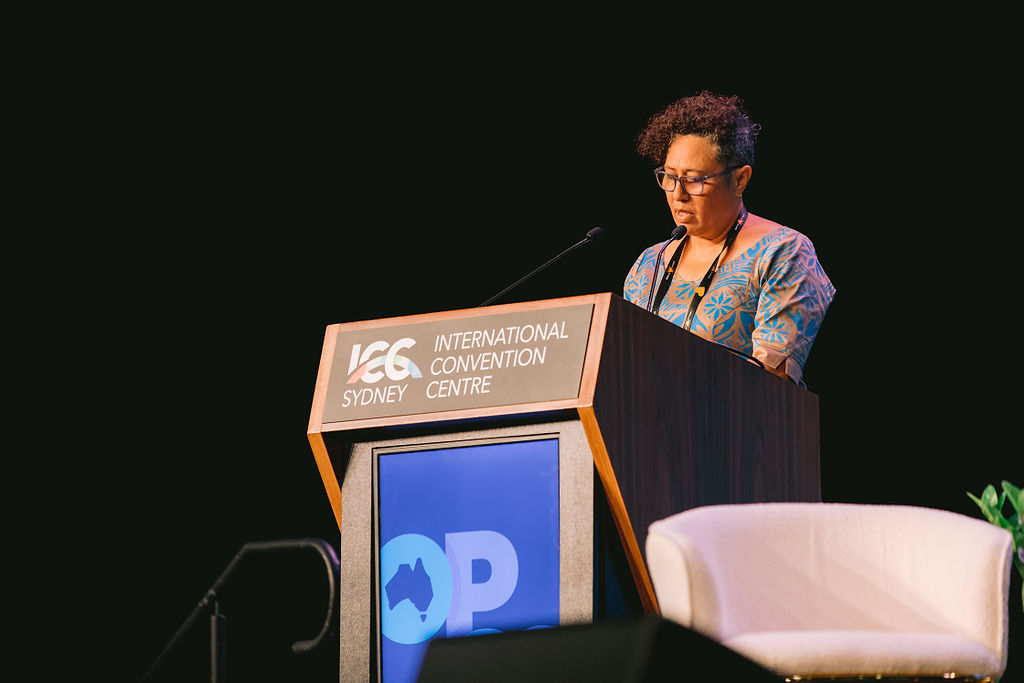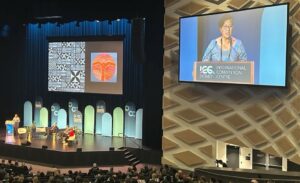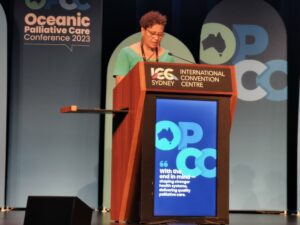Dr Malama Tafuna’i - Creating culturally appropriate palliative care in Pacific Island nations
Dr Malama Tafuna’i - Creating culturally appropriate palliative care in Pacific Island nations
by Megan Blandford
Wednesday, October 11, 2023
At the 2023 Oceanic Palliative Care Conference (23OPCC), Dr Malama Tafuna’i gave an insight into palliative care and primary care in Pacific Island nations.
It stands to reason that palliative care should fit seamlessly into Pacific Island nations.
“It's a care that, for many Pacific Island nations like Samoa, aligns well with our own cultural values and beliefs around caring for the sick, the elderly, the vulnerable and the terminally ill,” says Dr Malama Tafuna’i, a general practitioner born and raised in Samoa and working both in her home country and at New Zealand’s University of Otago.
“In our Samoan culture, it ensures they are cared for with respect and dignity. It is seen as the responsibility of the wider family and community, and great importance is placed on this. Providing this support and care is seen as fulfilment of cultural obligation.”
However, many Pacific Island nations are lacking a culturally appropriate, relevant palliative care model.
A system that isn’t designed for Pacific Island nations
The Pacific Island region comprises over 22 countries and territories, each with unique cultures, languages, values and beliefs – and Dr Tafuna’i is quick to point out that she speaks from a personal and professional perspective as a Samoan doctor, not for the region itself.

Dr Tafuna’i believes that many aspects of healthcare that work in other countries and regions simply aren’t fit for purpose in Samoa and other Pacific Island nations.
“We’re trying to develop things that have been articulated to us from well-intentioned international organisations, but these are often health models that are borrowed from somewhere else,” she says.
This means practices are put into place that don’t take into account the culture, beliefs and needs of each Pacific Island nation. It’s perhaps due to a lack of research into the requirements of these countries, and so a lot of assumptions are made about both future needs and current services.
These Western-based models tend to put the focus on treatment, disease and cures – not people. This comes at a cultural cost.
“There is a lack of palliative care services in Samoa and across the Pacific region, and I believe for Samoa this demonstrates a faulty health system. We are working in and navigating through a health system that was not developed nor designed by us and not developed nor designed for us.”
Opportunities to work together to create a tailored health policy
It’s time, Dr Tafuna’i believes, to create a model of care that aligns with the unique cultural values and beliefs of each Pacific Island nation – and she says that palliative care is at the heart of this need.
“Putting palliative care at the centre of health system strengthening will, I believe, help us improve and increase the value of health in service and in spending,” she says.
“Central to this will be ourselves engaging in participatory, actioned research with our local communities and traditional healers to understand our needs, the current local capacity and how best to implement whatever is decided for our people.
“A good start for us would be to look at national policies and ensure culturally appropriate palliative care is integrated into all our health policy.”

Dr Tafuna’i identifies some opportunities that could help make this idea possible:
- A partnership between Pacific Island nations, New Zealand and Australia to develop palliative care in country
- Investing in research that’s driven by Pacific Island nations themselves
- A bold approach by Pacific Island nations to lead the development of new models of care
- Urgent improvements to access to resources, equipment and medications
- Regular support for caregivers, families and communities who are providing palliative care. Dr Tafuna’i says this could include “training family members to bathe their loved ones, turn their loved ones over if bed bound, how to recognise certain signs and symptoms, and to be prepared for what this means.”
“I believe if … instead of using models of health care described by others, we looked inward and we defined a model that aligns with our beliefs and values and then build our health system around that, we would have better success in developing a strong health system that works for us,” says Dr Tafuna’i.
“This will refocus us to put our people – and not the system, not the services or diseases – first.”
Video recordings of 23OPCC sessions involving Dr Tafuna’i are now available to watch on demand via the 23OPCC Education Hub. Recordings are available free of charge to delegates as part of your registration. Subscriptions can also be purchased for between $200 and $400. More info and access - HERE.
